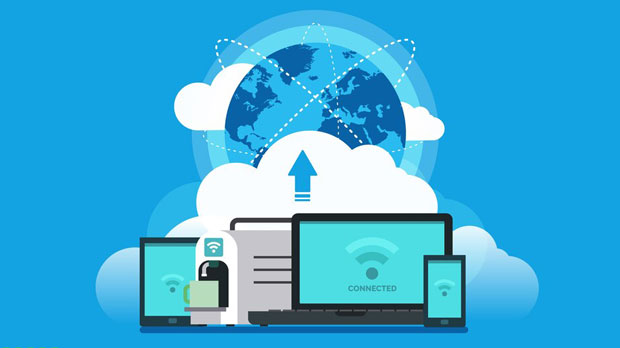In today's digital landscape, the demand for proxies has surged as businesses and individuals seek anonymity, bypass geo-restrictions, or scrape data without revealing their identity. However, with the growing demand, finding a proxy service that is both cheap and offers stable performance remains a challenge. Many low-cost proxy services often compromise on speed, reliability, and security. This article will explore key factors to consider when searching for an affordable yet reliable proxy service, providing insights on how to make an informed decision. 1. Understanding Proxies: The BasicsBefore diving into where to find cheap proxies, it's crucial to understand what proxies are and how they function. A proxy server acts as an intermediary between a user’s device and the internet, masking the user's IP address and allowing them to access websites and services anonymously. Proxies are commonly used for web scraping, browsing securely, and accessing geo-blocked content.There are various types of proxies, including residential, data center, and mobile proxies. residential proxies are typically the most expensive because they provide IPs from real devices. Data center proxies are cheaper, but they are often easier to detect due to their association with large-scale data centers. Mobile proxies are a hybrid between the two, providing IPs that resemble mobile device usage but tend to be costlier.2. Key Factors to Consider for Finding Cheap and Reliable ProxiesFinding a cheap yet reliable proxy service involves considering several important factors beyond just the price tag. Here are the main factors to help you evaluate the service:2.1. Speed and ReliabilityA cheap proxy might be tempting, but if it is slow or unreliable, it can negatively impact your experience. For web scraping, gaming, or accessing services that require low latency, speed is critical. Choose a proxy provider that guarantees high speeds without frequent downtime. Check for reviews and feedback from current users to gauge reliability.2.2. Security and PrivacyWhile cost is an important factor, compromising on security and privacy can lead to severe consequences, especially if you’re handling sensitive information. Ensure that the proxy provider has strong encryption protocols and a no-logs policy, so your browsing activity isn’t tracked or sold. Be cautious of "too good to be true" deals, as some cheap proxies may sell your data to third parties.2.3. Location VarietyThe location of the proxy server plays a crucial role in determining the quality of the service. If you need proxies for accessing geo-restricted content, it’s important to choose a service that offers proxies from a variety of countries. While it’s tempting to go for the cheapest option, make sure the provider offers the locations you need to ensure smooth and unrestricted access.2.4. Bandwidth Limits and Traffic TypeSome proxy services have strict bandwidth limits or throttle traffic based on usage. If you plan to use proxies for large-scale data scraping or high-volume browsing, ensure the service you choose provides unlimited bandwidth or high traffic allowances. This will prevent your proxy from slowing down or getting blocked due to excessive traffic.3. Affordable Proxy Options: Where to Find Them?Now that we understand the factors to consider, here’s a breakdown of where to find affordable yet stable proxy services.3.1. Proxy MarketplacesProxy marketplaces are platforms where multiple proxy providers list their services, often at competitive prices. These marketplaces allow you to compare different proxy services based on performance, location, and price. They can be a good option if you’re looking for cheap proxies with decent performance. However, be cautious and look for reviews and ratings before making a purchase.3.2. Niche Proxy ProvidersSome smaller, niche proxy providers focus on offering affordable services with specific features like fast speeds, high security, or location diversity. While these providers may not be as well-known as the big players, they often deliver better value for money. Look for providers that cater to your specific needs, whether it’s residential, data center, or mobile proxies.3.3. Free Proxy Services (with Limitations)For users on an extremely tight budget, free proxies may seem like an appealing option. While some free proxy services exist, they usually come with limitations such as low speeds, limited locations, and high risks in terms of security. Free proxies often do not offer the same level of performance or privacy as paid services, but they can be a good option for casual browsing or testing purposes. If you decide to go this route, be prepared for possible slow speeds and reliability issues.3.4. Trial Periods and Money-Back GuaranteesSome proxy providers offer trial periods or money-back guarantees, allowing you to test their service before committing to a long-term plan. This is an excellent way to evaluate performance, speed, and reliability without committing to the full cost. Take advantage of these trial offers to assess whether the proxy service meets your needs.4. How to Maximize the Value of Cheap ProxiesOnce you’ve chosen a cheap and reliable proxy service, there are a few ways to maximize its value:4.1. Monitor UsageTo avoid overuse of bandwidth or hitting traffic limits, regularly monitor your proxy usage. Many providers offer dashboards where you can track how much data you've used, which can help you avoid unexpected slowdowns or service interruptions.4.2. Use Multiple Proxy ProvidersIf you need a wide range of IPs or locations, consider using multiple proxy providers. By diversifying your proxy sources, you can ensure that you always have access to fast and reliable proxies, even if one provider experiences issues.4.3. Adjust for EfficiencyOptimize your usage by choosing proxies based on your specific needs. For example, use residential proxies for high anonymity, but switch to data center proxies for faster speeds during less sensitive activities. This strategy helps you balance cost and performance effectively.5. ConclusionFinding a cheap yet reliable proxy service requires careful consideration of several factors, such as speed, reliability, security, location, and bandwidth. While it’s possible to find affordable options, always be cautious and evaluate the service based on your needs. By understanding the different types of proxies and the factors that impact performance, you can make an informed decision and find the best proxy service that meets both your budget and your requirements.
Jul 31, 2025



































































